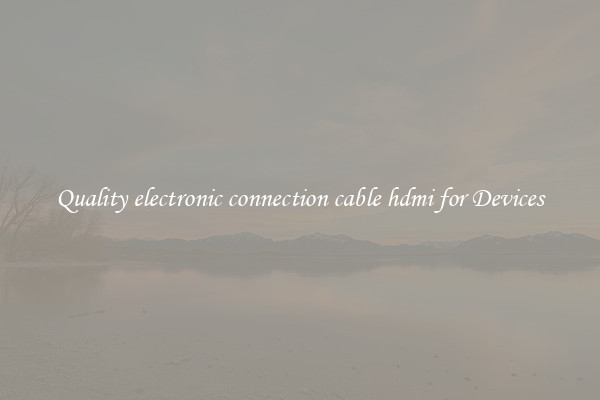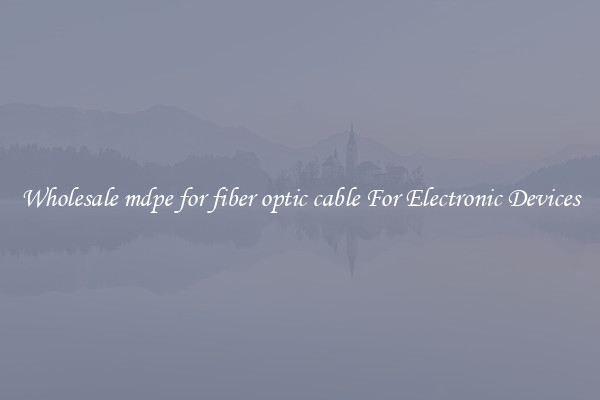Quality electronic connection cable hdmi for Devices
Quality Electronic Connection Cable HDMI for Devices

In this digital age, electronic devices have become an integral part of our daily lives. From televisions to gaming consoles, smartphones to laptops, we rely heavily on these gadgets for entertainment, communication, and work purposes. Behind every device, there is a network of cables and connectors that enable seamless transmission of audio, video, and data. One such essential cable is the HDMI (High-Definition Multimedia Interface) cable.
HDMI cables are used to connect devices like TVs, DVD players, laptops, gaming consoles, and projectors to transmit high-definition audio and video signals. The quality of an HDMI cable plays a crucial role in determining the clarity and resolution of the content being transmitted. Thus, it is crucial to invest in a high-quality HDMI cable to ensure optimal performance and durability.
One primary aspect to consider when choosing an HDMI cable is its version. To date, there have been several versions of HDMI, each containing different features and capabilities. The latest version available in the market is HDMI 2.1, which supports up to 10K resolution, allows for higher refresh rates, and enables high-definition audio return. However, it is important to note that not all devices are compatible with the latest HDMI version, so it is essential to check the specifications of your device before purchasing an HDMI cable.
Another factor to consider is the bandwidth of the HDMI cable. Higher bandwidth enables faster data transfer rates and better transmission of audio and video signals. This is particularly important if you are planning to use your device for gaming or streaming high-resolution content. Look for HDMI cables that offer a bandwidth of at least 18 Gbps (Gigabits per second) to ensure reliable performance.
In addition to version and bandwidth, the build quality of the HDMI cable is crucial for longevity and durability. High-quality HDMI cables are often constructed with corrosion-resistant connectors and robust shielding materials to minimize signal degradation and interference. These cables are built to withstand physical stress, making them less prone to breakage or damage over time.
When purchasing an HDMI cable, also consider the length you require. Longer cables may experience signal loss due to attenuation. It is generally recommended to choose the shortest cable that can effectively connect your devices. However, if a longer cable is necessary, opt for an active HDMI cable that includes built-in signal amplification technology to counteract any loss in signal quality.
Lastly, it is advisable to purchase HDMI cables from reputable manufacturers or authorized retailers. Counterfeit or low-quality cables may not deliver the performance or longevity you desire. Genuine cables often come with warranty protection, ensuring peace of mind and customer support in case of any issues.
In conclusion, investing in a quality electronic connection cable HDMI is a wise decision to maximize the audio and video experience of your devices. By considering factors such as version, bandwidth, build quality, and length, you can ensure reliable performance, durability, and longevity. Enjoy the crisp and vibrant visuals, immersive audio, and seamless data transmission with a high-quality HDMI cable.

View details

View details

View details

View details








